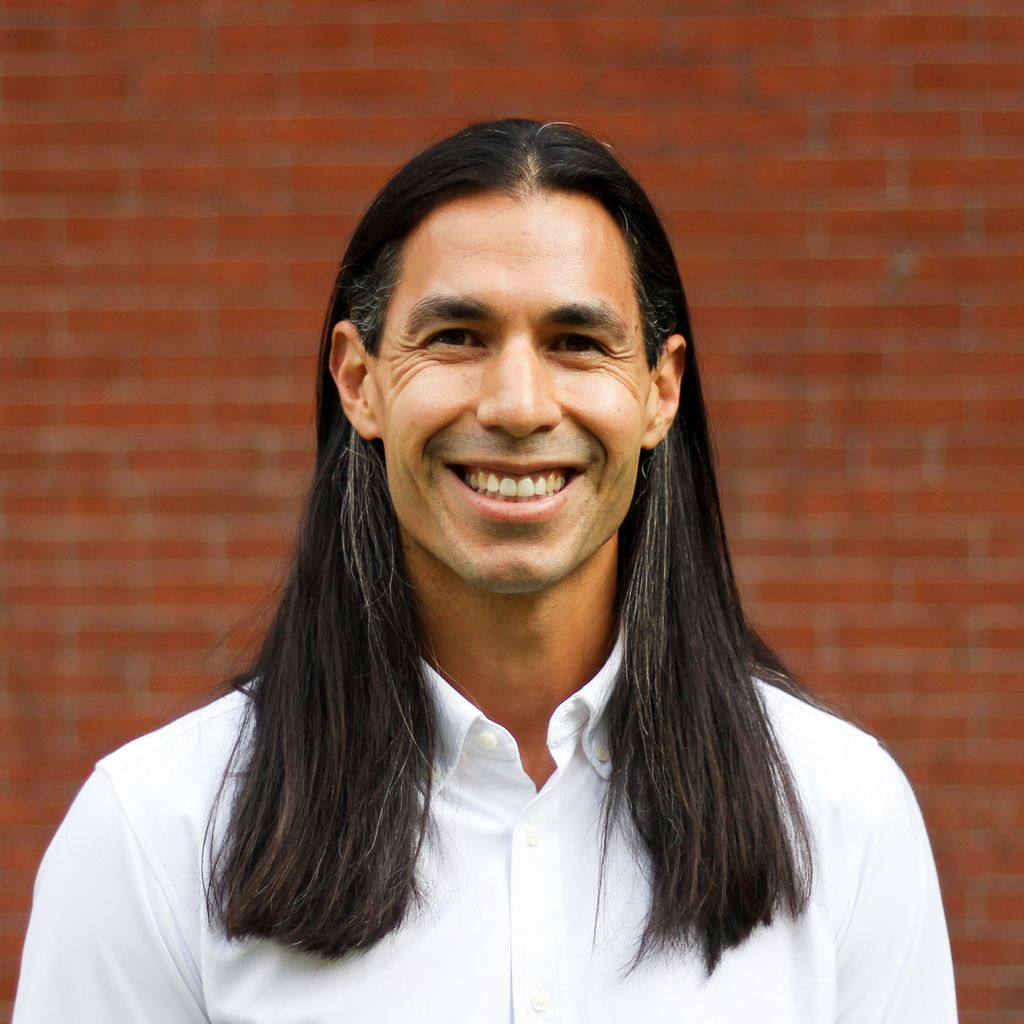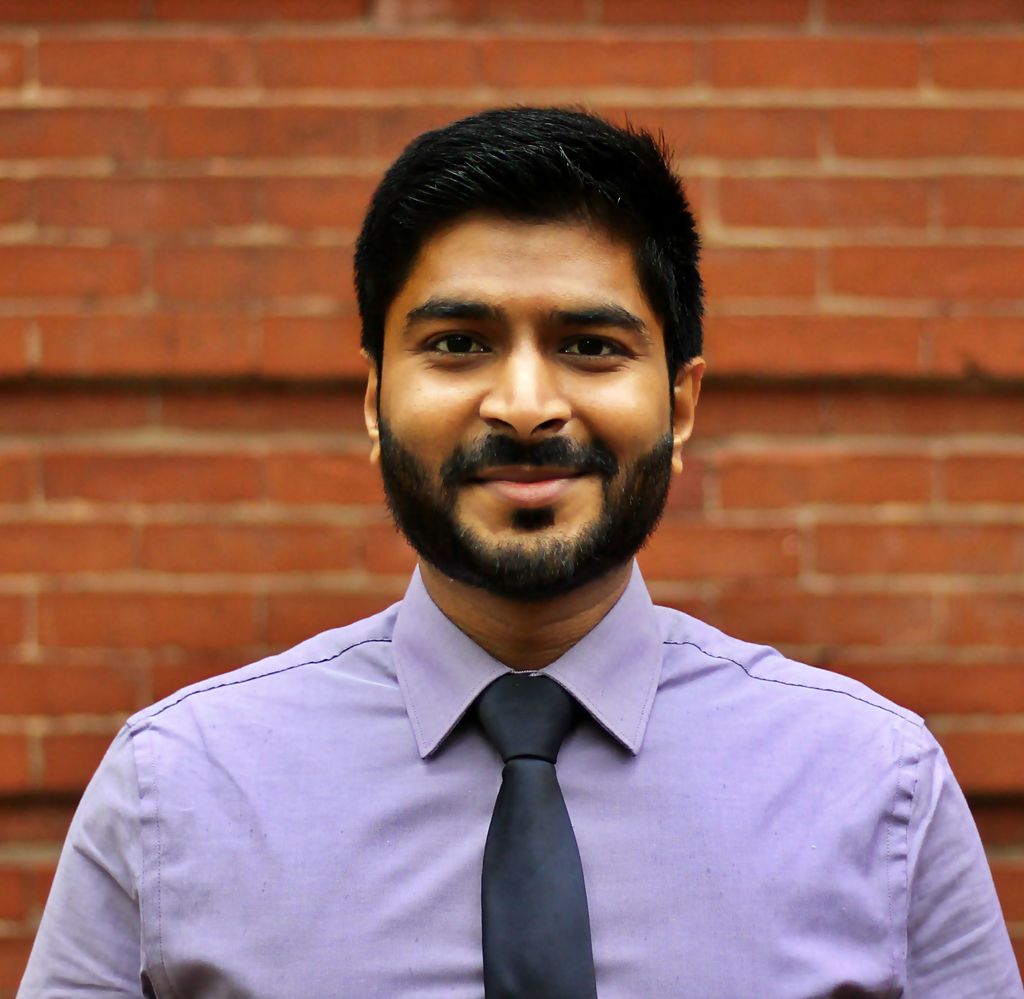Professors Awarded for Early Career Work in Urban Health, Disease Prediction.
Professors Awarded for Early Career Work in Urban Health, Disease Prediction
As new Junior Faculty Fellows at BU’s Hariri Institute for Computing, Jonathan Jay, assistant professor of community health sciences, and Shariq Mohammed, assistant professor of biostatistics, will further their research and connect with other experts in the computational and data sciences field.
Jonathan Jay, assistant professor of community health sciences, and Shariq Mohammed, assistant professor of biostatistics, have been named 2022 Junior Faculty Fellows at the Boston University Rafik B. Hariri Institute for Computing and Computational Science & Engineering.
The fellowship recognizes data-driven, early-career researchers who are using computational tools to inform their work and answer research questions across a range of fields, including public health, psychology, astronomy, and finance. The Institute supports fellows’ work and continued development by connecting them with one another, as well as other experts in the computational and data sciences field. The Junior Faculty Fellowship is a three-year appointment and includes a $10,000 award to further the recipient’s research.

Jay joined the School of Public Health in 2019, and works at the intersection of data science and urban health with a particular interest in understanding the relationship between the built environment and health and safety risks. Much of his work centers around gun violence prevention.
As the principal investigator of the Research on Innovations for Safety and Equity (RISE) Lab at SPH, Jay uses data analysis to investigate the root causes of urban health disparities related to gun violence, structural racism, and the built environment. Through this work, he leads Shape-Up, a project that uses machine learning to analyze aerial imagery to better understand how improvements to physical spaces within the built environment, such as adding green space, can help communities reduce gun violence. He is currently partnering with leaders in Portland, Oregon and Toledo, Ohio on this project.
In addition to this work, Jay is examining the spike in firearm violence and its racially disparate effects throughout the COVID-19 pandemic, and is working with the Violence Intervention Advocacy Program at Boston Medical Center to better understand the factors that influence risk and resilience among survivors of violence-related injuries.
Over the last year, Jay has also been the faculty co-lead of the Safety, Justice, and Health Learning Community, a university-wide initiative to bring together scholars across BU who are interested in how exposure to violence, policing, and mass incarceration damages health and reinforces health disparities. “The Hariri Institute fellowship aligns perfectly with this work, and I look forward to growing my collaborations across the Charles River Campus throughout my time as a fellow, including with data science faculty and trainees and with other researchers who are applying computational techniques to social science,” he says.

Mohammed joined SPH in 2021, and his work centers around developing innovative statistical modeling frameworks for the integration and analyses of complex data, such as biomedical imaging, genomics, and digital data. His research has applications in multiple disease contexts, including cancer and Alzheimer’s disease.
Currently, Mohammed is working with the Framingham Heart Study Brain Aging Program, where he is constructing novel biomarkers and integrating them with other imaging-based markers to predict Alzheimer’s Disease and related dementias in patients. Through funding from an SPH Early Career Catalyst Award, he is also developing rigorous statistical models and open-source software to analyze the spatial organization of cell populations to better understand the microenvironments of several biological and disease contexts, including cancer.
In collaboration with the Biostatics and Epidemiology Data Analytic Center at SPH, Mohammed is also building innovative statistical models using geo-spatial survey data to assess and rank the health and well-being of counties and states across the country based on individual-level factors. This work will help to provide insights into the performance of different areas in the US in terms of their health policy and management and the resulting impact on population health.
“I am honored to be selected as a new Junior Faculty Fellow for the Hariri Institute,” says Mohammed. “I look forward to connecting with the Institute’s BU community and broader network, building new connections and collaborations, and engaging in meaningful ways. The Institute is an exceptional community of cross-disciplinary researchers, and I am excited to learn from its members and grow in my own work and areas of interest.”
The Hariri Institute initiates research and advances social impact initiatives at the intersection of computational and data sciences. They collaborate with students, staff, and faculty from across BU, as well as with industrial partners from both the private and public sectors, to transform research and promote innovation across a broad set of disciplines, including engineering, social sciences, and the arts.
Several SPH faculty members have research projects that are supported through funding from the Institute, and Elaine Nsoesie, assistant professor of global health, and Prasad Patil, assistant professor of biostatistics, are currently Junior Faculty Fellows.